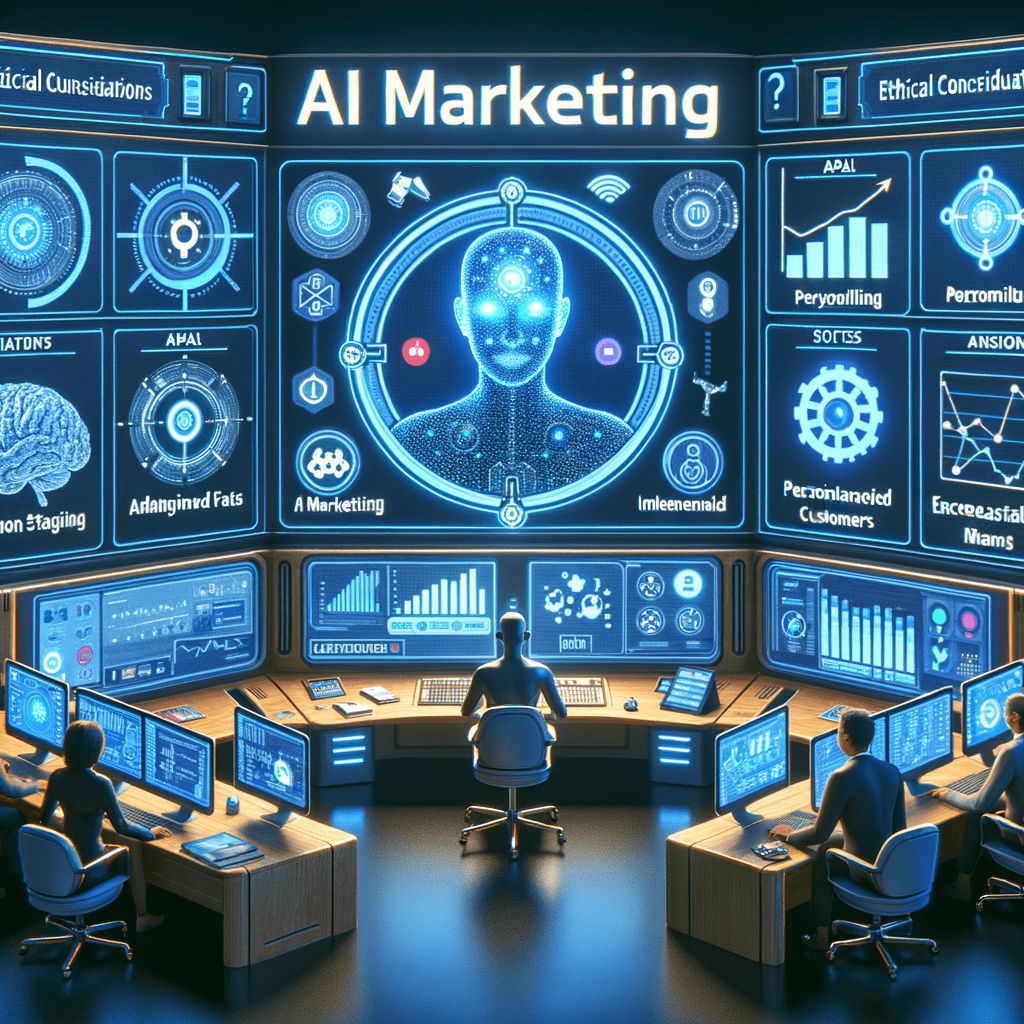Feeling overwhelmed by the buzz around AI in marketing? You’re not alone. It seems a new tool or trend pops up daily.
This makes it challenging to sort through the hype and determine what an AI agent for marketing can do for your business. AI agents analyze data, enabling businesses to gain key customer insights.
What is an AI Agent for Marketing?
An AI agent for marketing is a virtual assistant powered by artificial intelligence. It’s a tireless team member working behind the scenes, capable of handling various tasks. These tasks range from analyzing large datasets to creating social media posts.
These agents leverage technologies like natural language processing (NLP) and machine learning algorithms. This allows them to analyze your target audience and predict engaging content and ads, creating personalized shopping experiences.
How AI Marketing Agents are Transforming the Industry
AI is rapidly changing marketing. Major companies like Meta, Google, and Amazon invested heavily in AI, over $50 billion in Q2 2024.
This investment signifies AI’s importance, indicating it’s not a fad but the future of business. This raises the question: should marketers be worried? The answer is complex. AI agents are transforming how businesses interact with their customers.
Reshaping the Customer Journey
AI agents lead to more resolution-focused customer journeys. Unlike limited chatbots with generic answers, AI agents take direct action.
For example, if a customer is stressed about lost luggage, an AI agent can access their booking information. The agent can pinpoint the bag’s location rather than directing the customer to endless FAQs.
Personalization and Content Creation
With increased computing power, analyzing customer data for personalized marketing is now feasible, even for smaller businesses. Previously, this level of data-driven personalization was costly and difficult.
Data suggests that marketers using these techniques achieve significant revenue growth. AI-powered content creation enhances this further, automating tasks like drafting blog posts. This allows marketers to focus on client interaction and campaign planning.
How to Build Your AI Agent for Marketing
Companies like Taskade offer AI agent builders. These platforms enable the creation of custom AI agents without coding experience. Businesses are seeking more than just automation. They’re creating AI agents to generate engaging blog posts and handle social media, transforming the landscape of marketing teams.
Building a custom AI marketing agent involves selecting functionalities like content creation, market analysis, or customer interaction. Understanding your objectives is crucial for integrating the AI agent into your marketing strategy.
Examples of AI Agents in Action
| Agent Type | Function | Example |
|---|---|---|
| Content Creation | Generates blog posts, social media content, and website copy. | An agent drafts engaging Instagram posts promoting new features, using relevant hashtags and visuals. |
| Customer Segmentation | Divides the customer base into groups based on behavior and demographics. | An agent analyzes purchasing behavior and chat logs to identify segments for targeted campaigns. |
| Predictive Analytics | Forecasts future customer trends and campaign results using historical data and market trends. | An agent analyzes website activity and social media interactions to predict ad revenue trends. |
| Customer Engagement | Automates personalized outreach and addresses customer service issues. | An agent integrates with CRM systems to message clients overdue for renewal or with low engagement. |
Challenges and Ethical Considerations for AI Agents for Marketing
Despite the excitement around AI, it’s essential to acknowledge the challenges. Data privacy and job displacement are key concerns. AI agents streamline workflow, however.
Ethical Considerations
Algorithmic bias, arising from biased training data, is another consideration. Companies must be cautious to ensure AI solutions are socially responsible and don’t unfairly target specific groups.
While AI enhances efficiency, human expertise remains crucial. Marketers define strategies and messaging, while AI supports content creation and analyzes data, forecasting future trends.
AI’s impact on marketing costs and personalized sales needs ongoing analysis. It has the potential to transform how businesses connect with individual customers. Data-driven decisions are vital, and machine learning provides powerful tools.
FAQs about AI Agent for Marketing
Is there an AI for marketing?
Yes, there are many AI tools for marketing. Several companies offer no-code platforms accessible to users without coding experience. These tools are revolutionizing marketing by enabling personalized and automated campaigns for businesses of all sizes. Generating content and targeted marketing are key strengths. Educational content can be provided to guide teams.
What are the 5 types of agent in AI?
Five common AI agent types are simple reflex agents, model-based reflex agents, goal-based agents, utility-based agents, and learning agents. Many AI agent builders offer pre-built functionalities and easy integration with business processes.
Resources like AskAI provide customer service AI solutions, along with helpful guides, webinars, and tutorials. They offer insights into using AI agents effectively for various marketing needs.
Is ChatGPT an AI agent?
ChatGPT can be a component of an AI agent but isn’t an agent itself. It’s like an engine in a car—a key part but not the whole vehicle. AI agents need broader capabilities beyond natural language generation.
They collect data, pursue goals, make decisions, learn, and perform tasks autonomously. Analyzing customer data provides valuable insights for marketers.
How to use AI in digital marketing agency?
AI agents have diverse applications in digital marketing agencies. They assist with market analysis, customer segmentation, and personalized content creation throughout the customer journey.
Predictive analytics agents anticipate customer behavior, enabling agencies to optimize inventory and campaigns. AI empowers agencies to offer sophisticated marketing solutions, including personalized content creation, without requiring coding experience. Targeted marketing campaigns become easier to manage with AI assistance.
Leveraging AI's Marketing Potential
AI agents for marketing are no longer a futuristic concept but a present reality. As brands prioritize engaging customer experiences, marketing must adapt to rapid innovation. Industry insights and educational content about building and utilizing an AI marketing agent can assist those still unfamiliar.
Data indicates that companies not adopting AI risk falling behind. McKinsey reports that 72% of companies have integrated AI, highlighting a significant trend.
AI offers automated, personalized marketing campaigns, replacing costly sales teams and enhancing efficiency. AI becomes indispensable for businesses, enabling data-driven marketing strategies and optimizing ROI through detailed campaign performance analysis.






